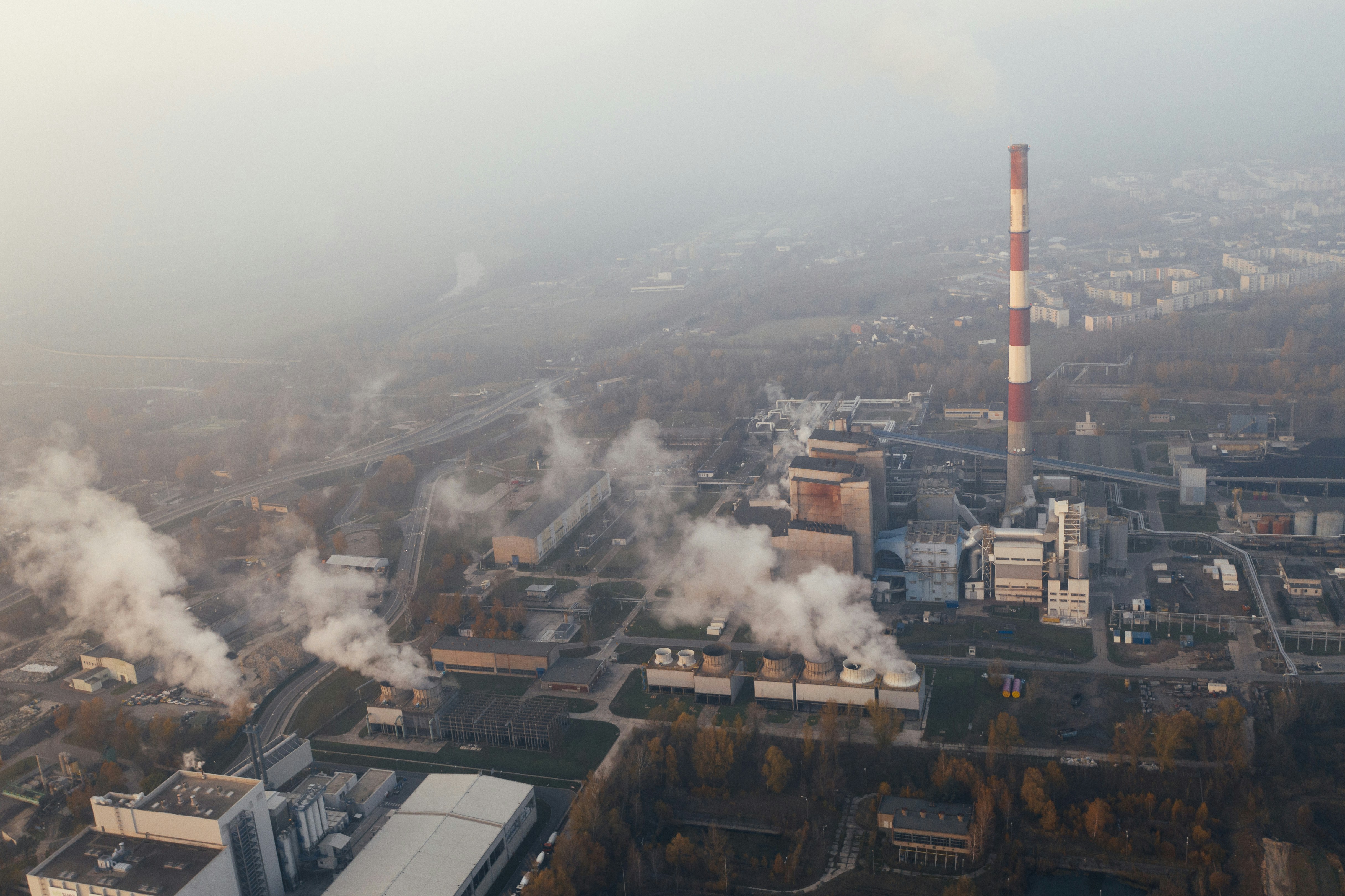Gas Power's Comeback: AI's Growing Energy Appetite And Climate Goals

The rapid expansion of artificial intelligence is reshaping industries, driving innovation, and creating significant energy demands. As the AI boom accelerates, the United States is turning to natural gas as a primary energy source to meet these needs. Long considered a "bridge fuel," natural gas is lauded for its reliability and lower emissions compared to coal. However, this reliance is sparking a debate: Can we balance the energy demands of AI with the urgent need to meet global climate targets? This article explores the growing role of gas power in supporting AI growth and the challenges it poses to sustainability.
The AI Appetite and Its Energy Demands
Expansion of AI Technologies
Artificial intelligence has become a cornerstone of modern innovation, powering everything from machine learning algorithms to autonomous systems. This growth has led to an explosion of data processing and storage requirements, with energy-intensive data centers at the core of AI infrastructure. The need for continuous, reliable power has skyrocketed as AI applications expand across industries.
Why AI Relies on Gas Power
Natural gas has emerged as the go-to energy source for powering AI operations due to its cost-effectiveness, scalability, and ability to provide consistent power. Unlike renewable energy sources such as wind and solar, which can be intermittent, natural gas ensures the round-the-clock energy supply essential for AI-driven data centers and high-performance computing.
The Role of Gas Power in the Energy Transition
Gas as a "Bridge Fuel"
Natural gas has long been touted as a bridge fuel, offering a cleaner alternative to coal while renewable energy technologies mature. Its lower carbon emissions and scalability make it an attractive option for meeting immediate energy needs without fully abandoning fossil fuels.
Criticism of Natural Gas
Despite its advantages, natural gas is not without drawbacks. Methane leaks during extraction and transport significantly contribute to greenhouse gas emissions, undermining its status as a "clean" energy source. Critics argue that investing in new gas infrastructure locks in fossil fuel dependency, delaying the transition to renewables.
Challenges to Meeting Climate Targets
Increased Emissions from Gas Plants
The construction of new gas power plants to support AI-driven energy demands is projected to increase greenhouse gas emissions. This rise poses a direct challenge to achieving net-zero climate goals, potentially setting back global efforts to combat climate change.
Impact on Renewable Energy Goals
Expanding gas infrastructure risks diverting resources and investment away from renewable energy projects. As gas power becomes more entrenched, it could delay the scaling of wind, solar, and battery storage technologies, hindering the broader energy transition.
Global Implications
US energy policies have far-reaching effects on international climate efforts. Increased reliance on gas power could weaken the country’s leadership in climate negotiations, drawing criticism from global organizations and environmental advocates.
Big Tech’s Role in the Energy Equation
Energy Demands of Data Centers
Major tech companies like Google, Amazon, and Microsoft are driving much of the increased energy demand. Their expansive data centers, essential for AI and cloud computing, are among the largest energy consumers. This reliance has made them key players in the push for more gas power.
Tech Industry’s Climate Pledges
Big Tech companies have made ambitious climate commitments, including pledges to achieve carbon neutrality and invest in renewable energy. However, the growing dependence on gas power raises questions about their ability to honor these commitments while meeting the energy needs of their AI operations.
Finding a Balance: Pathways to Align AI Growth with Climate Goals
Investing in Renewable Energy Infrastructure
Accelerating investments in renewable energy sources like wind, solar, and battery storage is essential to reducing reliance on gas power. Public policies and incentives can play a significant role in promoting these technologies and making them competitive with fossil fuels.
Enhancing Energy Efficiency in AI Operations
Improving the energy efficiency of data centers and AI systems can help mitigate the environmental impact of AI growth. Strategies include adopting energy-efficient hardware, optimizing algorithms, and employing advanced cooling technologies.
Policy and Regulation
Policymakers can encourage a balanced approach by setting emissions limits for gas power plants and incentivizing carbon capture and storage (CCS) technologies. Regulatory frameworks must also prioritize renewable energy development to ensure a sustainable transition.
Conclusion
The resurgence of gas power in the age of AI highlights the tension between technological progress and environmental responsibility. While natural gas offers a reliable solution for meeting AI’s energy demands, its long-term impact on climate goals cannot be ignored. To achieve a sustainable balance, government, industry, and researchers must collaborate on innovative solutions that prioritize both growth and environmental stewardship. As the energy landscape evolves, the choices made today will shape the future of both technology and the planet.
Author: Ricardo Goulart
Copper's Comeback: Inside BHP And Lundin's Argentine Asset Acquisition
Copper, often dubbed "the metal of electrification," is experiencing a resurgence in demand due to its critical role in ... Read more
Revitalizing Commodities: How Clean Energy Is Breathing New Life Into A Stagnant Market
The commodities market, traditionally a cornerstone of investment portfolios, has experienced a decade of stagnation. Ho... Read more
European Airports Disrupted By Escalating Climate Protests
Climate activists have escalated their protests at European airports, blocking runways and causing flight disruptions in... Read more
Hungary's Russian Oil Dilemma: Why Brussels Is Cautious In Offering Support
Hungary's reliance on Russian oil has led it to seek support from Brussels to ensure continued access to this crucial en... Read more
Unveiling China's Secret Commodity Stockpiles: What Lies Ahead?
Xi Jinping's extensive reserves of grain, natural gas, and oil hint at future challenges.In a move shrouded in secrecy, ... Read more
Copper Miners Brace For Industry Overhaul As End Users Seek Direct Deals
The copper mining industry is bracing for a significant overhaul as end users, including cable manufacturers and car com... Read more

